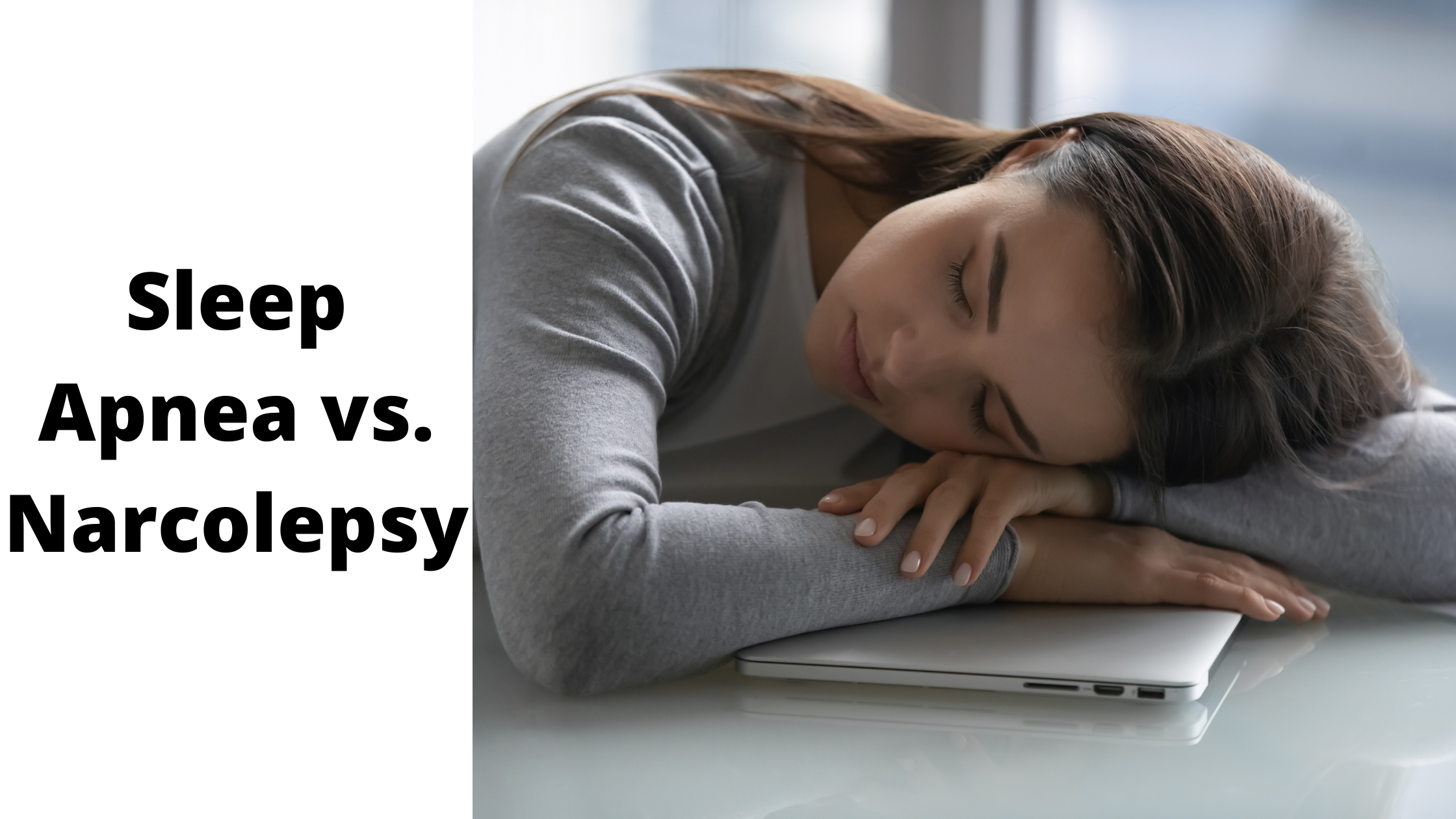
Excessive daytime sleepiness is a symptoms that probably a majority of adults deal with. Normally it's due to just the lack of time and ability to get the recommended number of hours of sleep. However, sometimes it's due to an underlying sleep disorder. Two common causes of excess daytime sleepiness are sleep apnea and narcolepsy.
Their symptoms and presentations may seem very similar, but it's important to know the difference between them for treatment purposes. Continue reading to find out more about the differences between sleep apnea and narcolepsy.
What is Sleep Apnea?
Apnea is the term used for cessations in breathing while sleeping. This means that at different times in the night, you will stop breathing while you are sleeping. These pauses are momentary, but they often cause you to wake up and begin breathing again. Most of the time, you are unaware that this is happening, but your bed partners may become very frightened, and you will be extremely tired the next day without knowing why.
There are two types of apnea. One is called obstructive sleep apnea. This is due to a blockage in your airway caused by the relaxation of the muscles in the back of the throat. Risk factors for sleep apnea include obesity, having a wide neck, smoking, and being male.
The second type is central sleep apnea. Central sleep apnea is caused by an issue in the brain signaling to your lungs or diaphram triggering you to breathe.
There is a third type called complex sleep apnea syndrome, which is a treatment-emergent central sleep apnea and occurs when someone has both obstructive and central sleep apnea.
What is Narcolepsy?
Narcolepsy is an issue with the sleep cycle, not with breathing. Normally, sleep cycles are every 90 minutes and progress through four phases, three phases of non-rapid eye movement sleep and one cycle of rapid eye movement (REM) sleep. If you have narcolepsy, you go into the rapid eye movement stage of sleep without progressing through the first three cycles.
Similar to sleep apnea, there are two types. Narcolepsy 1 is where you have a sudden loss of muscle tone, making it impossible to control your muscles, also known as cataplexy. In movies and TV shows, it's similar to when they just randomly fall asleep, but not as dramatic.
Narcolepsy 2 does not have cataplexy.
Symptoms of Sleep Apnea
- Snoring
- Apnea events, or periods of breathing cessation
- Gasping for air during sleep
- Morning headaches
- Insomnia - Inability to sleep
- Hypersomnia - Overwhelming urge to sleep
If you, or your partner says you're experiencing any of these problems, then it may be time to be evaluated for sleep apnea.
Symptoms of Narcolepsy
- Excessive daytime sleepiness
- Cataplexy
- Hallucinations upon waking up or upon going to sleep
- Sleep paralysis
- Disrupted Sleep
The symptoms of narcolepsy can be very dangerous to you and others around you, especially while driving or operating heavy machinery. Therefore, if you are experiencing any of these symptoms, then you need to seek treatment immediately.
Treatment for Sleep Apnea
If you are concerned because you have some of the above symptoms, then talk with your doctor. They will set you up with a sleep physician who will perform a polysomnography - or a sleep study. They will hook you up to various wires and machines and study your breathing, sleep waves, heart rate, oxygen levels, and other vital signs. Then a sleep expert will study the results and diagnose you with sleepnea.
The positive thing is that sleep apnea is treatable. For obstructive sleep apnea, treatment will most likely be a continuous positive airway pressure device (CPAP). The CPAP is a mask that fits over the nose and/or mouth and pushes air through the airway to keep it open during sleep. With the CPAP, there will be no snoring, and fewer symptoms after starting with a CPAP machine.
There are also other treatments for sleep apnea, like dental appliances, upper airway surgery to remove airway tissue, disposable valve over nostrils, and hypoglossal nerve stimulation in the patient's chest.
Lifestyle changes can also be very effective for sleep apnea like losing weight, avoiding alcohol, and stopping smoking can help reduce the effects of sleep apnea.
Treatment of narcolepsy
Fortunately, narcolepsy can be treated with lifestyle changes. However, it's still essential to talk with your physician about your symptoms and what you're experiencing. Until then, you can try some of these interventions:
- Brief and frequent naps throughout the day
- Strict bedtime routine
- Self-care before bed and a solid sleep hygiene routine
- Avoidance of stimulants and alcohol or high levels of sugar right before bed
- No exercise at least two hours before bed
- No heavy meals before bed
There are some pharmacological interventions, as well, that can help so be sure to consult a sleep health expert, as well as attempt the lifestyle changes.
Main similarities and differences
The only similarity is that they are both chronic sleep disorder. They both have symptoms that can negatively impact one's ability to feel well-rested which will have adverse effects on one's daily life. They can both be treated and you should seek help from a sleep health professional.
The main difference between them is that narcolepsy impacts how one progresses through their sleep cycle, while sleep apnea is a problem with one's ability to breathe throughout the night. Sleep apnea is more uncomfortable and feeling tired, while narcolepsy can be more dangerous as one can fall asleep or lose muscle control while doing anything.
If you think that you have one of these disorders, please click the orange button below to talk with a sleep health professional as soon as possible.
https://www.neurologicalwellness.com/blog/the-main-differences-between-sleep-apnea-and-narcolepsy/

